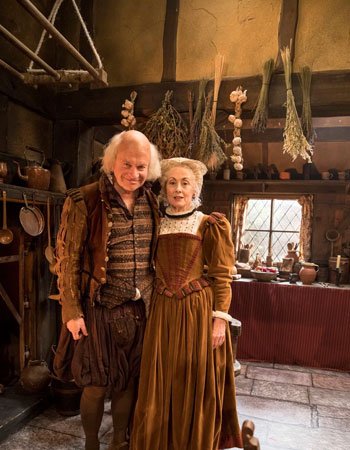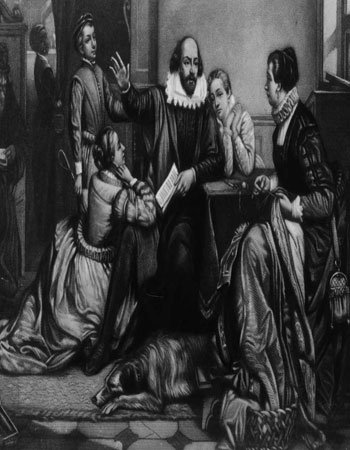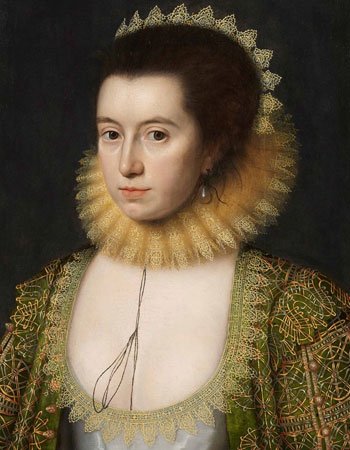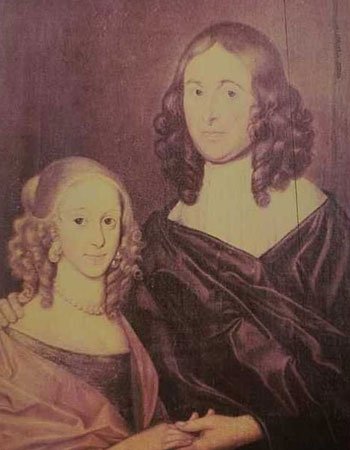William Shakespeare, an English playwright, poet, and actor, holds an esteemed place in literary history. He is universally recognized as the most eminent writer in the English language and is hailed as the paramount dramatist of all time. Shakespeare’s literary prowess thrived during the Elizabethan and Jacobean eras of British theatre, which are often referred to as the English Renaissance or the Early Modern Period. He is affectionately known as England’s national poet and often referred to as the “Bard of Avon” or simply “the Bard.”
William Shakespeare’s Biography Age, Career, Family, Education, Poetry, and More
William Shakespeare’s birthday is traditionally commemorated on April 23, a date that is also associated with his passing in the year 1616. Stratford-upon-Avon, situated approximately 100 miles to the northwest of London, served as the backdrop to his life. During Shakespeare’s era, this town was a vibrant market town situated along the River Avon and intersected by a rural thoroughfare. It is important to note, though, that these historical records offer only brief glimpses into specific episodes of his life and offer limited insights into his true character.
Family Life
John Shakespeare and Mary Arden joined in matrimony and were blessed with eight children. Although official attendance records from that era have not survived, most biographers concur that William Shakespeare likely received his education at the King’s New School in Stratford. This free school received a charter in 1553 and was conveniently located about a quarter-mile (approximately 400 meters) from the Shakespeare family home. It’s noteworthy that John and Mary Shakespeare had endured the loss of two infant daughters, making William their eldest surviving child.

William Shakespeare Parents’ Pic

William Shakespeare Brothers and Sisters Pic

William Shakespeare Brother Pic

William Shakespeare Wife Pic

William Shakespeare Son Pic

William Shakespeare Twins Daughters Pic

William Shakespeare Family Pic

William Shakespeare Childhood Pic
Married Life
At the age of 18, William Shakespeare entered into matrimony with Anne Hathaway, who happened to be eight years his senior. Their union brought forth three children: a daughter named Susanna and a set of twins, Hamnet and Judith. Tragically, Hamnet passed away at the tender age of 11. Following the birth of the twins, Shakespeare’s life leaves relatively few historical records until he resurfaces as a notable figure in the London theatre scene in the year 1592.
Private Life
Scant records of William Shakespeare’s personal life have endured over the centuries. Consequently, this scarcity has sparked substantial speculation regarding various aspects of his life, including his physical appearance, sexuality, religious convictions, and even debates about whether the works attributed to him were, in fact, penned by others.
Poetry
During the early stages of his career, William Shakespeare managed to capture the attention and patronage of Henry Wriothesley, the Earl of Southampton. In a gesture of appreciation, he dedicated his first two published poems, “Venus and Adonis” (1593) and “The Rape of Lucrece” (1594), to Henry Wriothesley. This dedication was significant, as Wriothesley’s financial support provided crucial income, particularly during periods when the theaters were closed due to plague outbreaks.
In “Venus and Adonis,” Shakespeare explored the theme of an innocent Adonis rejecting the amorous advances of Venus, while in “The Rape of Lucrece,” he depicted the tragic story of the virtuous wife Lucrece falling victim to the lustful Tarquin.
The King’s Men
The exact inception of William Shakespeare’s writing career remains a matter of historical uncertainty. Nevertheless, existing references and records of performances strongly indicate that several of his plays were already gracing the London stage by the year 1592. It was during this period that Shakespeare began to emerge as a prominent figure in the world of theatre. In 1594, Shakespeare joined the ranks of Lord Chamberlain’s Men, a distinguished London-based acting troupe. His association with this company would prove to be a lifelong commitment, marking a pivotal moment in his career.
Life as an Actor and Playwright
The interpretation of Robert Greene’s comments about Shakespeare made in 1592, continues to fuel scholarly discussions. Greene’s remarks appear to suggest that Shakespeare, a man of modest social standing, was daring to compete with university-educated writers such as Christopher Marlowe, Thomas Nashe, and Greene himself—collectively known as the “University Wits.” These comments by Greene serve as a testament to Shakespeare’s ambition and the stir he was causing in literary circles.
The theatrical company that would later become known as the King’s Men, of which Shakespeare was an integral part, held a position of immense prestige during its era and enjoyed widespread popularity among audiences. Greene’s words, with their clever pun “Shake-scene” and a playful parody of a line from Shakespeare’s own play “Henry VI, Part 3,” left no doubt that Shakespeare was the primary target of Greene’s criticism.
Shakespeare Career
Shakespeare embarked on his career as an actor, but with time, he increasingly devoted himself to the craft of playwriting. In 1599, a consortium of members from his company undertook the construction of a theater on the southern bank of the River Thames, a project that would ultimately result in the iconic Globe Theatre. It is worth noting that while “The Taming of the Shrew” is believed to be among Shakespeare’s earliest works, his first published plays were “Titus Andronicus” and “Henry VI Part 2.”
In 1608, the same theatrical company secured ownership of the Blackfriars indoor theatre. By the conclusion of 1597, Shakespeare had very likely authored 16 of the 37 plays attributed to him and had begun to accumulate a measure of wealth and recognition. Notably, the 1616 edition of Ben Jonson’s Works included Shakespeare’s name in the cast lists for “Every Man in His Humour” (1598) and “Sejanus His Fall” (1603). Following the ascension of King James I to the throne in 1603, the company formally adopted the name the King’s Men, cementing its position as a leading theatrical troupe of the time.
Globe Theater
In 1599, a consortium of members from the theatrical company embarked on the construction of their own playhouse situated along the southern bank of the River Thames, christening it the Globe Theatre. The inaugural production at this novel open-air venue is believed to have been “Julius Caesar.” In 1608, this same partnership assumed control of the Blackfriars indoor theatre. This venture into theater ownership would ultimately prove to be an exceedingly lucrative endeavor for Shakespeare and his fellow investors.
Surviving historical documents concerning Shakespeare’s real estate acquisitions and financial investments offer compelling evidence of his growing prosperity. By 1597, his association with the company had substantially enriched him, enabling him to purchase New Place, the second-largest residence in Stratford. Additionally, in 1605, he invested in a share of the parish tithes in Stratford, further underlining his financial success.
Shakespeare’s ‘Lost Years’
Between the years 1585 and 1592, Shakespeare embarked on a highly successful career in London, where he assumed roles as an actor, playwright, and part-owner of a theatrical company known as the Lord Chamberlain’s Men. Later, this company would be recognized as the King’s Men. William Shakespeare’s literary contributions have garnered global recognition, with a body of work that encompasses no less than 37 plays, 154 sonnets, and 2 narrative poems. These writings masterfully capture the full spectrum of human emotion and conflict and have remained celebrated for well over four centuries. Shakespeare’s plays have been translated into virtually every major living language and continue to grace the stage more frequently than those of any other playwright.
Sonnets
Among Shakespeare’s most renowned literary contributions is his collection of 154 sonnets, initially published in 1609 but believed to have been composed as early as the 1590s. Even before the appearance of two unauthorized sonnets in “The Passionate Pilgrim” in 1599, Francis Meres had made reference in 1598 to Shakespeare’s “sugared Sonnets among his private friends.” These sonnets are generally divided into two distinct categories by scholars, based on the two unknown subjects to whom Shakespeare addresses them: the Fair Youth sonnets (comprising the first 126 sonnets) and the Dark Lady sonnets (consisting of the final 28). The 1609 edition of the sonnets was dedicated to a “Mr. W.H.,” acknowledged as “the only begetter” of the poems.
The identities of the aristocratic young man and enigmatic woman who inspired these sonnets remain subjects of ongoing speculation. Critics laud the Sonnets for their profound exploration of themes including love, sexual desire, procreation, mortality, and the passage of time.
Shakespeare’s Works
William Shakespeare’s prolific writing career spanned from approximately 1589 to 1613, during which he produced a remarkable body of work. In total, Shakespeare’s literary output comprises 38 plays, 2 narrative poems, 154 sonnets, and several other poems. His early works predominantly consisted of comedies and historical plays, many of which are still regarded as some of the finest examples of these genres. These writings were eventually compiled in what became known as the First Folio, which included 36 of his plays but did not feature any of his poetry.
Subsequently, Shakespeare turned his focus towards writing tragedies, a period that lasted until around 1608. During this phase, he authored some of his most celebrated works, including “Hamlet,” “Othello,” “King Lear,” and “Macbeth,” which are universally acknowledged as among the greatest achievements in the English language. In his later career, Shakespeare explored tragicomedies, often referred to as romances, and engaged in collaborative writing with other playwrights.
Laters Years and Death
Nicholas Rowe, the first biographer to document this tradition, which was later reiterated by Samuel Johnson, claimed that Shakespeare retired to Stratford “some years before his death.” After the passing of his father, John, in 1601, Shakespeare inherited the family home. Notably, he continued working as an actor in London until 1608. In response to the sharers’ petition in 1635, Cuthbert Burbage mentioned that, following the acquisition of the Blackfriars Theatre lease in 1608 from Henry Evans, the King’s Men “placed men players” there, including Heminges, Condell, and Shakespeare. This period marked Shakespeare not only as an artist but also as an entrepreneur. Many scholars believe that these investments provided him with the financial stability and uninterrupted time needed to focus on his playwriting.
Died
William Shakespeare passed away on April 23, 1616, at the age of 52. Church records indicate that he was laid to rest at Holy Trinity Church on April 25, 1616. Interestingly, no existing contemporary source provides an explanation for the cause of his death.
In his last will and testament, he bequeathed the majority of his possessions to his eldest daughter, Susanna, who was already married at the time. It’s been suggested that Shakespeare’s death might have resulted from a fever contracted during a merry gathering with fellow playwrights and friends, including Ben Jonson and Michael Drayton. The scenario involves a convivial meeting with perhaps excessive drinking, leading to the contraction of a fatal fever. It’s worth noting that Shakespeare was acquainted with Jonson and Drayton.
Legacy and Controversies
Shakespeare is recognized for possessing one of the most expansive and comprehensive souls among all poets, both in the modern era and possibly in ancient times. His contributions to the English language are monumental, with him being credited for inventing or introducing over 1,700 words. This linguistic impact frequently resulted from his innovative approaches, which involved combining words, altering their usage, or incorporating foreign root words. Additionally, he gave birth to numerous common phrases that are still in use today, such as “love is blind” and “wild goose chase.” Shakespeare’s linguistic contributions have left an enduring imprint on the English language itself.
Wealth
In 1602, William Shakespeare made a cash payment of £320 to William Combe and his nephew John to acquire approximately 107 acres of land in Old Stratford. Additionally, he purchased a cottage and additional land in Chapel Lane. In 1605, Shakespeare invested £440 to obtain a 50% stake in a lease covering numerous tithes, yielding an annual income of £60.
Also Check: Walt Whitman
| Body Measurements | |
| Birth Place | Stratford-upon-Avon, UK |
| Children | 3 |
| Eye Color | |
| Hair Color | |
| Height In CM | CM |
| Height In Meter | M |
| Nationality | English |
| Parents | Father: John Shakespeare Mother: Mary Arden |
| Profession | English playwright, poet and actor |
| Siblings | Brothers: Gilbert Shakespeare, Richard Shakespeare, Edmund Shakespeare Sisters: Joan Shakespeare, Margaret Shakespeare, Anne Shakespeare |
| Spous | Anne Hathaway |
| Weight | |
| Zodiac Sign |
Comments
If you have any question, please write below.

Enter your comment!